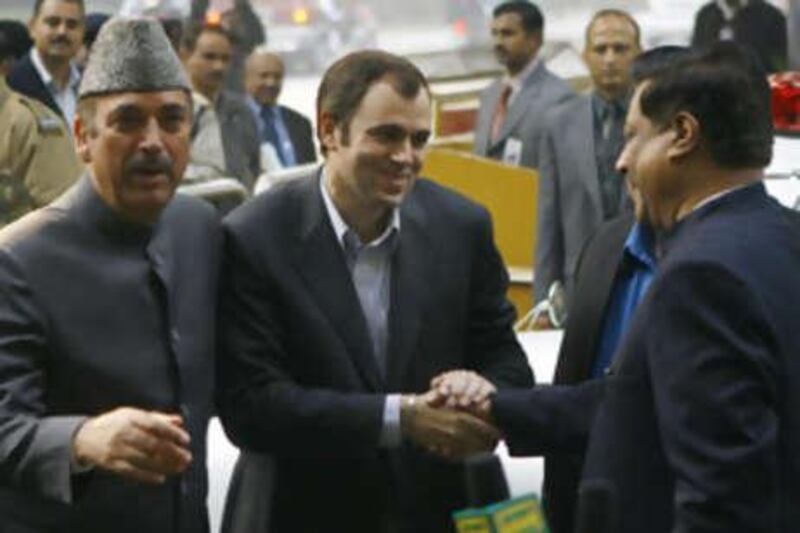KASHMIR // A young, pro-India Muslim politician, Omar Abdullah, was set to become the new chief minister of Indian Kashmir today - the third generation of his family to hold the post. Mr Abdullah, the leader of the pro-India National Conference, was backed by India's ruling Congress Party, after state elections in the troubled Muslim-majority region failed to return an outright winner. "It was decided that I will head the coalition government in Jammu and Kashmir," Mr Abdullah told reporters in New Delhi after meeting Congress party chief Sonia Gandhi.
The National Conference won 28 of the state assembly's 87 seats, while Congress secured 17. The regional People's Democratic Party will provide the main opposition with 21 seats. Despite a boycott call by separatists and armed rebels, more than 60 per cent of voters participated in the multi-stage elections in Indian Kashmir which came after a period of direct rule from New Delhi. Abdullah, 38, inherited the National Conference leadership in 2002 from his father, Farooq Abdullah, who had succeeded his own father Sheikh Abdullah as chief minister.
The Indian authorities and national media were quick to hail the turnout as a "victory for democracy" in Kashmir where an armed insurgency has claimed at least 47,000 lives since 1989. The Kashmir region is divided into Indian and Pakistan-controlled sections and claimed in whole by the two South Asian rivals. Some separatists in Indian Kashmir favour independence, while others would like to be part of Pakistan.
India says Pakistan gives the armed militants logistical and material support - a claim rejected by Islamabad. * AFP





